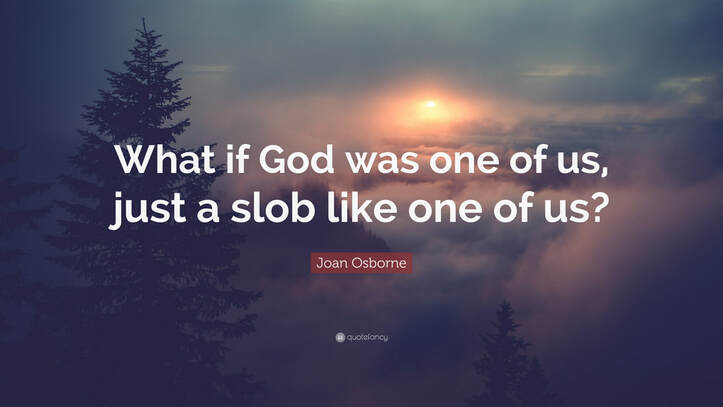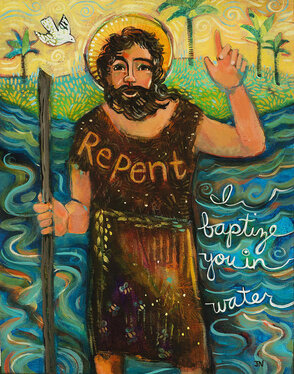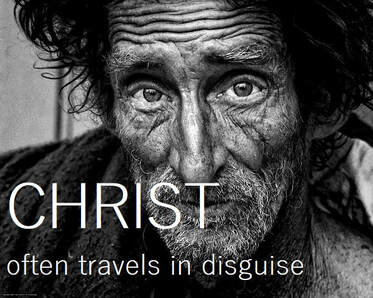Christmas Eve, 7:30 and 11 PM
First Congregational Church of Cheshire
© the Rev. Dr. James Campbell
Luke 2:8-20
In that region there were shepherds living in the fields, keeping watch over their flock by night. Then an angel of the Lord stood before them, and the glory of the Lord shone around them, and they were terrified. But the angel said to them, “Do not be afraid; for see—I am bringing you good news of great joy for all the people: to you is born this day in the city of David a Savior, who is the Messiah, the Lord. This will be a sign for you: you will find a child wrapped in bands of cloth and lying in a manger.” And suddenly there was with the angel a multitude of the heavenly host, praising God and saying, “Glory to God in the highest heaven, and on earth peace among those whom he favors!” When the angels had left them and gone into heaven, the shepherds said to one another, “Let us go now to Bethlehem and see this thing that has taken place, which the Lord has made known to us.” So they went with haste and found Mary and Joseph, and the child lying in the manger. When they saw this, they made known what had been told them about this child; and all who heard it were amazed at what the shepherds told them. But Mary treasured all these words and pondered them in her heart. The shepherds returned, glorifying and praising God for all they had heard and seen, as it had been told them.
There are all sorts of reasons that people stop believing in God. Sometimes it’s a trauma so intense, so painful, that we cannot imagine how a God of love would allow such a thing to happen. My grandfather was one of those, after being left alone to raise eight children when my grandmother died before she was 40. Other times, people stop believing in God because of the clash between science and what they have been told the Bible teaches. They assume those two disciplines – religion and science - speak the same language – but they don’t. Some others just loose interest as the years pass. But of all the non-believers I’ve ever known and loved, the majority of them stopped believing in God because of religion. These folks, once part of the church, experienced hypocrisy, the love of money, and the abuse of the vulnerable at church. Sometimes they were the abused ones. And so, the only conclusion they could come to, the only one that made any sense, was that all of this – the building, the liturgy, the tradition - was a bunch of hogwash.
Maybe you are one of them. Maybe you don’t really believe any of this. Maybe you are here tonight because of tradition or because of grandma or because you’re trying to keep the peace at Christmas dinner tomorrow.
Well, I know how you feel. Despite my title and the fact that I am standing in a pulpit on Christmas Eve, dressed like, I know, first-hand what it’s like to doubt because of religion. I’ve seen religion do a great deal of damage in the world. I’ve seen it used to draw lines between people – who’s in and who’s out. I’ve seen it used, as a weapon to bash those not approved of, used as a manipulation or as a power play. And so there have been times when I too was tempted to call it all a bunch of hogwash.
Those who don’t believe have been in the news a lot in recent years. Non-believers are coming out of the closet in large numbers. And people assume that the swelling ranks of those who don’t believe is a new phenomenon. There have always been those who entertained doubts, they just did it quietly for the most part. And there have always been those who wanted to believe but were pushed out by religion. Some of those were around that first Christmas night.
In that region there were shepherds living in the fields, keeping what over their flocks by night.
I’ve never really given those shepherds much thought. My view of them has been shaped mostly by movies and the Charlie Brown Christmas Special and my own role in multiple Christmas pageants, dressed in a bathrobe and with a towel on my head. At the 5 PM children’s service today, I had a pillowcase on my head. And so my view of shepherds in the ancient world is a romanticized one.
But those shepherds living in the fields, keeping watch over their flocks by night, were actually some of the most persecuted and misunderstood people of their day. And religion played a major part in their persecution.
By the time that Jesus was born in Bethlehem, shepherding was at the very bottom of the social order. It was the job that you took when no one else would hire you. It was the job you could get when you got out of prison and no one wanted you. And that made shepherds the brunt of a thousand jokes; the folks you could make fun of at polite dinner parties and no one would object.
Shepherds were commonly categorized as liars, degenerates, and thieves. Thus, it was easy for politicians to use them as foils against all of society’s ills. If there was a rise in crime, blame the shepherds. If they moved into your neighborhood, sell your house. If there was civil unrest, blame them. If you wanted to score cheap political points, make the conversation about them. After all, they’re all just liars and degenerates and thieves.
So demonized was this group of people, that their testimony was not admissible in a court of law. Why would you believe a liar? Additionally, many towns in ancient Palestine had ordinances barring shepherds from even entering the city limits.
And to make matters worse, the religious establishment, who should have been advocating for the outcasts as the Hebrew Scriptures teach, instead took a particularly dim view of the shepherds. Because they lived with the sheep, and because sheep need tending seven days a week, the shepherds were not able to keep the Sabbath as others did. They had to work on Saturday. And because they did, and because this was breaking a foundational religious law, the shepherds were considered ritually unclean. And any ritually unclean person was shunned by the rest of society.
Now when people are shunned, they have two basic choices. They can either accept their condition – even come to believe it’s true - and slink quietly into the shadows. Or, they can be more proactive in their condition and simply stop caring that they are shunned. They reject the society that rejects them. They may even claim that as a badge of honor. Not belonging becomes its own identity. And when religion is a cause of your social isolation, well then, forget religion! -- And maybe, just maybe, that’s what these shepherds had done. Maybe, just maybe, they, like some of us, had stopped believing altogether. But it was to them – these skeptics and the doubters and the outsiders – that the angel of the Lord appeared.
The Gospel of Luke is written from the point of view of the outcast - the weak, the vulnerable, the misunderstood – those are the heroes of Luke’s Gospel. So it’s not surprising that the angel of the Lord did not appear to the King. She did not appear to the priests. She did not appear to those who went to Temple every week. Instead, this herald announcing the birth of the Savior of the world - trusted that precious message to nobodies.
Now, that alone was shocking enough. But there is even more scandal here.
Shepherds were also the brunt of jokes because they lived with the animals they cared for. They slept with them and ate with them and everybody thought they smelled like them. But the angel of the Lord told the shepherds that this Baby would be found wrapped in bands of cloth and lying in a manger – an animal-feeding trough. The Son of God would be found among the sheep and goats and cows and manure and the smell – the very things that made the shepherds outcasts. That’s where God would be found.
Back in the 1990s, when I had left the church and was feeling very much the outsider because of the church, the singer Joan Osborne recorded a song that, in some ways, literally saved me. The song simply asks “What if God was one of us? Just a slob like one of us, just a stranger on a bus, tryin’ to make his way home.”
I remember at the time that some religious people were scandalized by these lyrics. They were scandalized because they needed a God who was high and exalted; a Heavenly King, a being so wholly other that we humans could have no real connection. They complained that this song demeaned the Almighty and brought him down to our level. But they shouldn’t have worried about that so much – because Christmas already took care of that.
The Incarnation, Emmanuel, God-with-us, in the muck of life - that is the reason I still call myself a Christian. And so on this holy night, I am once again left to ponder: what wondrous love is this that God would come to live like one us, to smell like one of us, to laugh like one of us, to cry like one of us, to die like one of us. Just like us.




 RSS Feed
RSS Feed